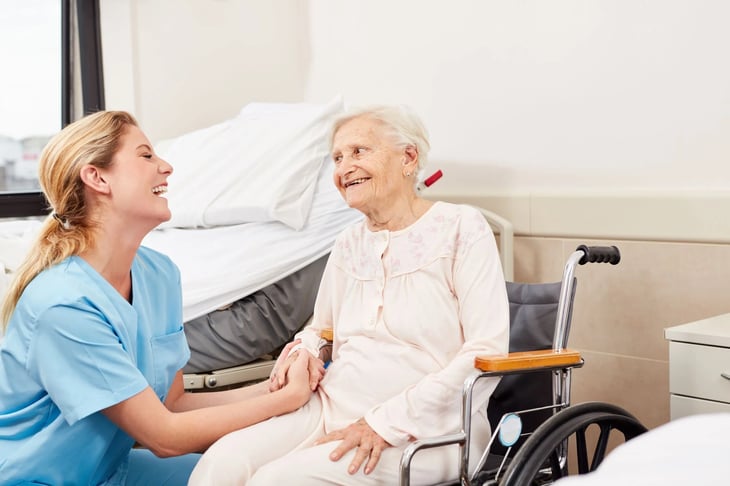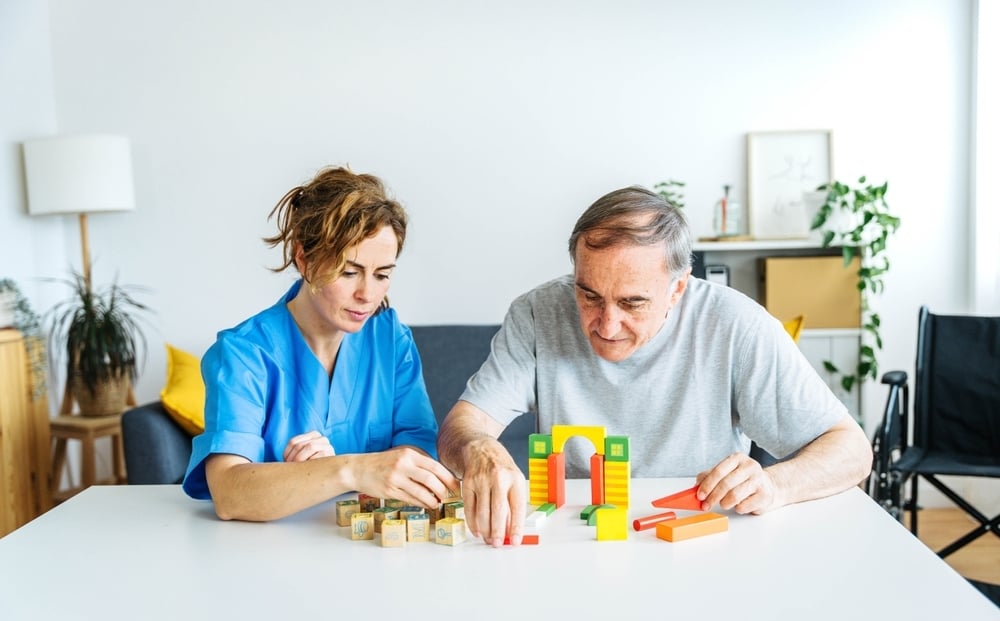Helping to improve people's experiences of social care
Matching the interests of residents and care workers is essential for fostering a positive care environment. When care staff and residents share common interests, residents often feel more comfortable with their carers. This comfort can lead to the development of friendships, encouraging open conversations about their care experiences.

Building professional relationships between carers and residents who share similar hobbies or life experiences can also significantly enhance a resident's quality of life. Such connections make the overall care experience more personal and meaningful, increasing happiness, reducing stress, and providing a range of health benefits, including improved mood and cardiovascular health.
Establishing these connections also fosters trust, provides emotional support, and creates a sense of belonging, all crucial for overall wellbeing. Additionally, it can help residents feel less lonely, which can lead to increased self-confidence and self-worth. A stronger sense of belonging and purpose may motivate residents to take on greater responsibility or engage in positive risks.
Carers can also tailor their approach to better meet the needs of each resident, ultimately improving their quality of life.

It's essential to recognise that many residents may not have anyone else in their lives, which can lead to loneliness and isolation. In such cases, their carers often become the primary source of social interaction and emotional support. This relationship plays a significant role in the residents' overall wellbeing, as meaningful conversations and shared activities with carers can help combat loneliness.
If residents lack individuals with whom they can relate, engage in conversation, or share common interests, they are at a higher risk of experiencing loneliness and depression. This isolation can take a profound toll on their emotional wellbeing, affecting their mental health and diminishing their overall quality of life. To combat this pervasive issue, it becomes imperative to cultivate meaningful connections and encourage social interactions among residents, fostering an environment where they can feel valued and understood.
For carers, establishing strong and meaningful relationships with residents is fundamental to delivering exceptional care. This endeavour goes beyond routine tasks; it involves cultivating connections built on patience, empathy, and a sincere interest in understanding each resident's unique life stories and experiences.

In order to achieve this, carers should invest time in active listening, which means giving residents their full attention, acknowledging their feelings, and responding thoughtfully to their concerns and interests. This practice helps residents feel heard, valued, and appreciated.
Moreover, offering opportunities for shared activities can greatly enrich these relationships. Activities such as group discussions can foster a sense of community, while creative workshops allow residents to express themselves and tap into their talents. Social outings can provide a refreshing change of scenery and create memorable experiences that residents cherish. These shared moments enable residents to form friendships and develop a strong support network within the community.
These intentional efforts enhance residents' emotional wellbeing and contribute to a vibrant and lively living environment. By weaving together personal connections and collective experiences, carers help transform the space into a welcoming and nurturing haven that benefits everyone involved.
How does Person Centred Software's digital social care record system help to match care staff and resident interests?
Our digital social care record system is not only helping to revolutionise care organisations digitally and giving carers more time to spend with residents doing what they enjoy, but it also helps match staff and resident interests.
The system's 'Matching Staff and Resident Interests' feature helps care organisations identify staff and residents with similar interests, and as a result, residents are enjoying a more personalised and engaging care experience.

When carers and residents share similar interests, it helps to bring them closer together and build better friendships. This also creates meaningful and engaging conversations for the carer and the resident and gives care staff a better understanding of who they are caring for, empowering them to provide more personalised and effective care tailored to each individual's specific requirements.
As mentioned above, it's important to remember that some care home residents may not have family or friends. Therefore, it's crucial that they feel like they have meaningful and important relationships with their carers.
It's not just about making residents feel taken care of, but also making them feel cared about.
Match care staff and resident interests with our digital social care record system
Improving people's experiences of care





.jpg)

.webp?width=80&height=80&name=HTD%20Awards%202023%20Badge%20(4).webp)














